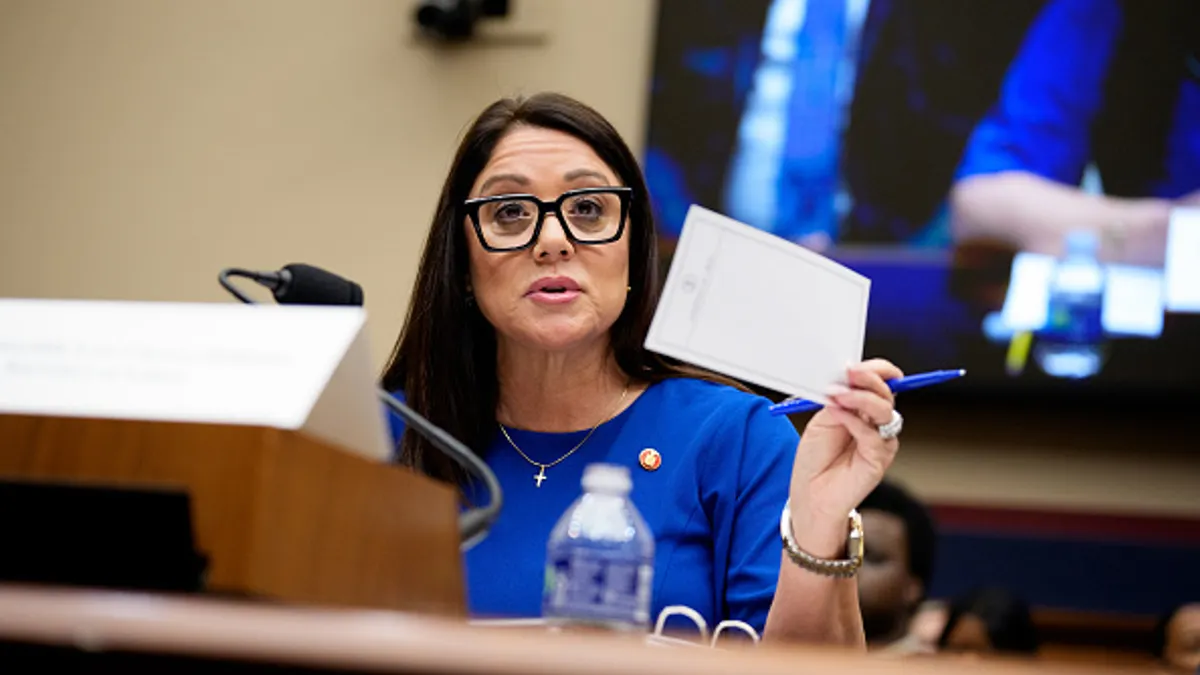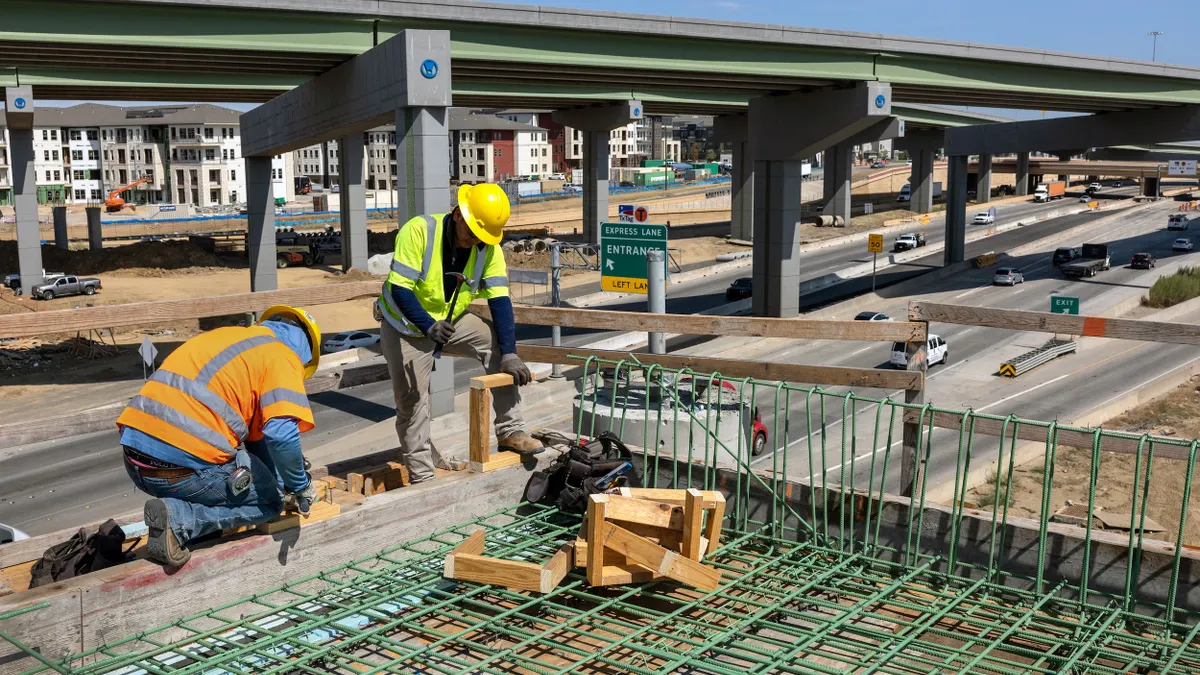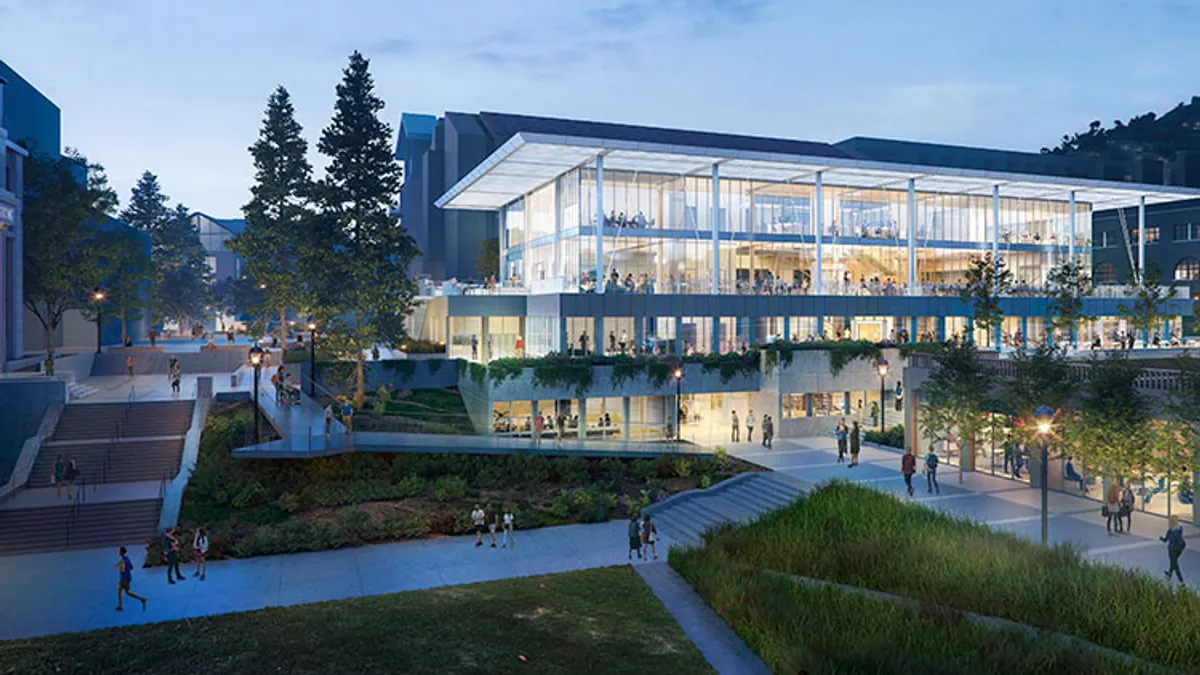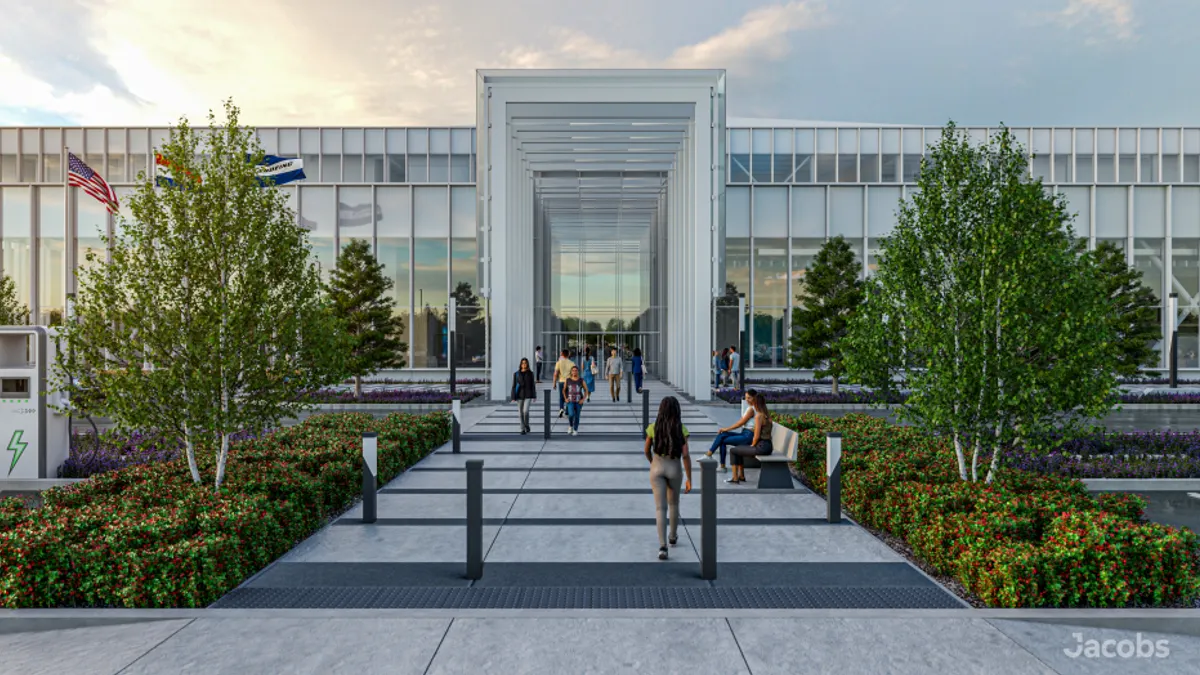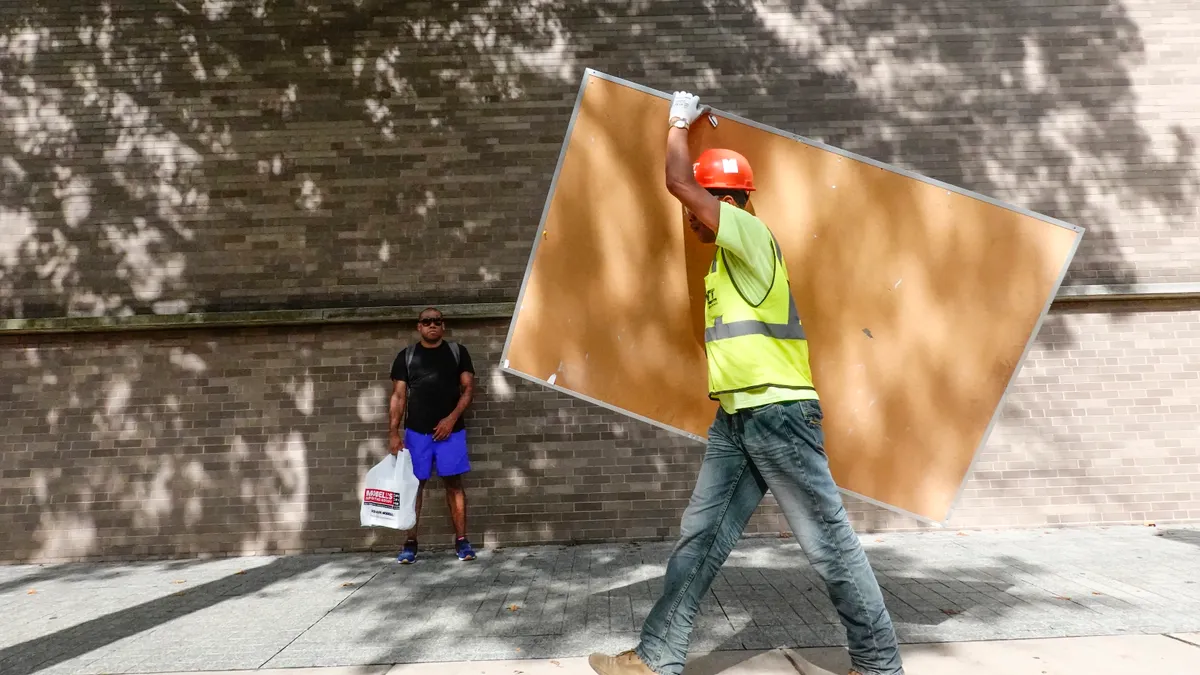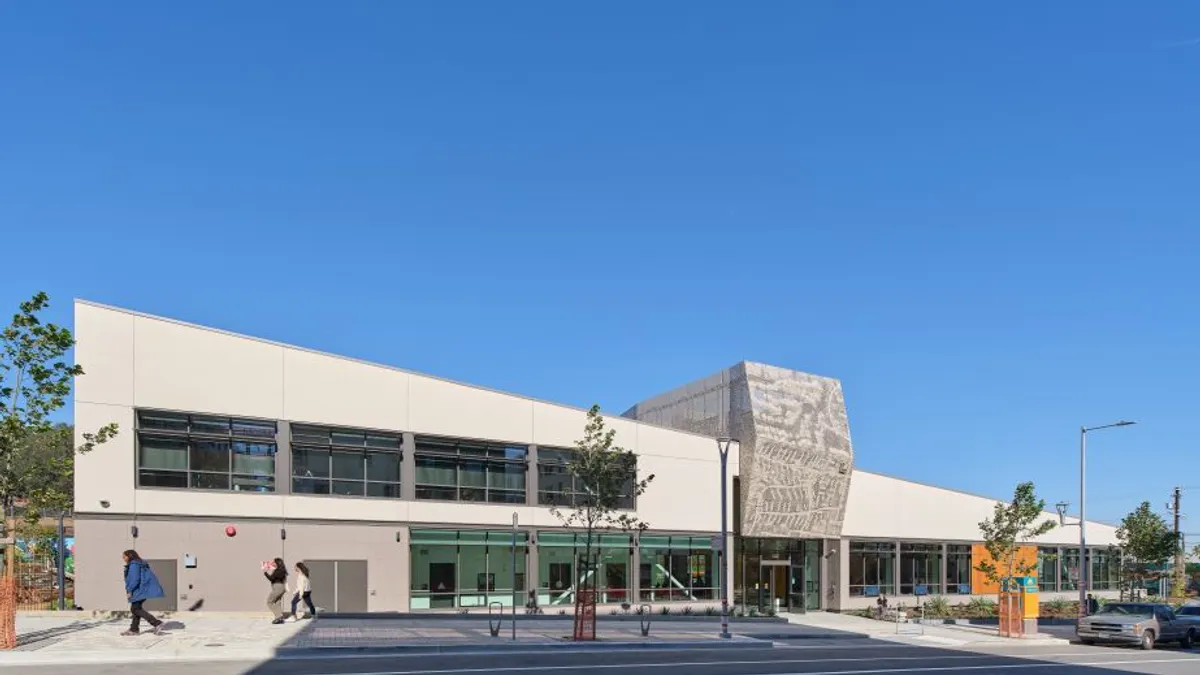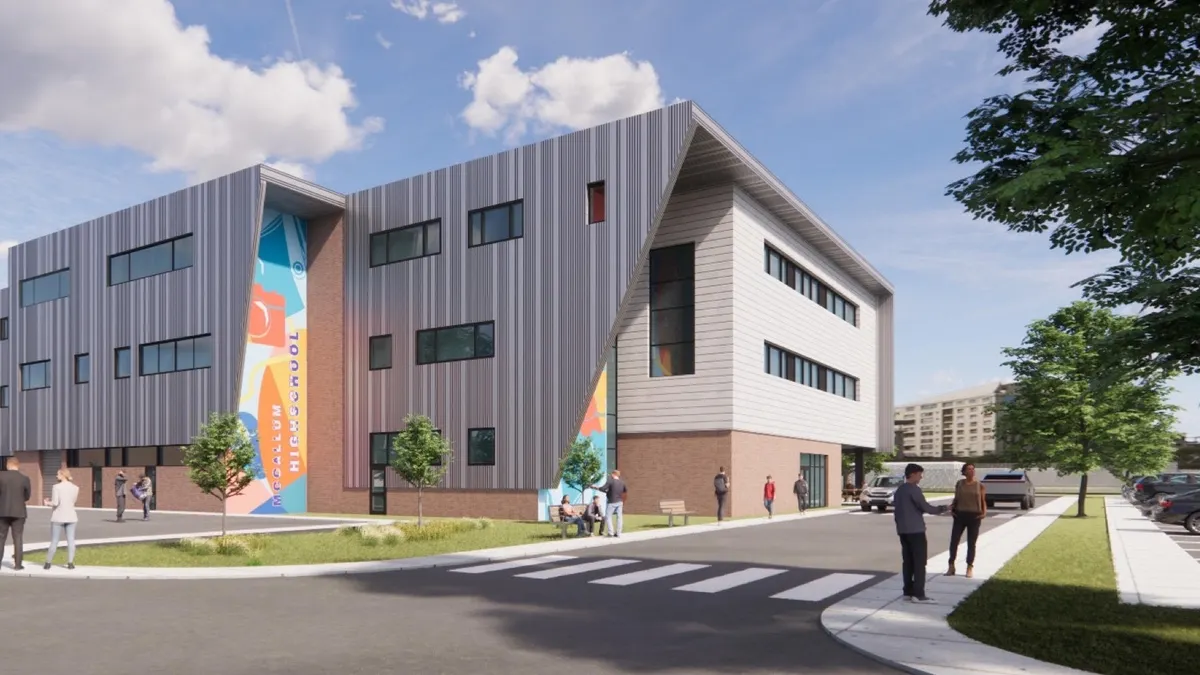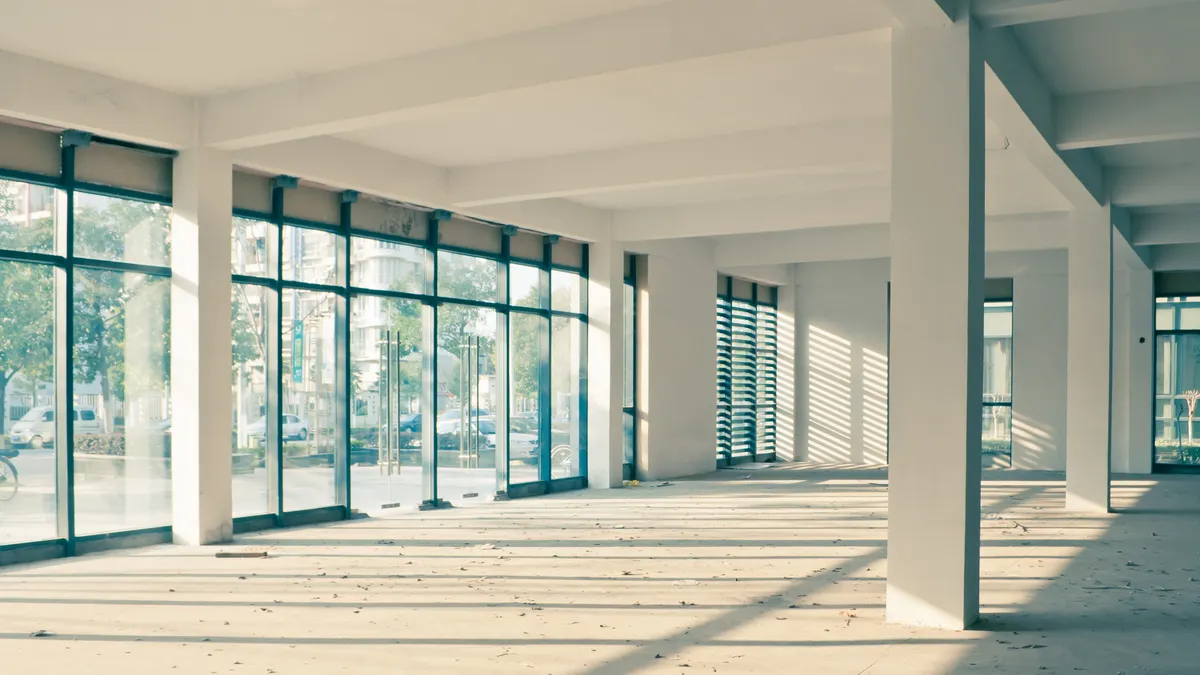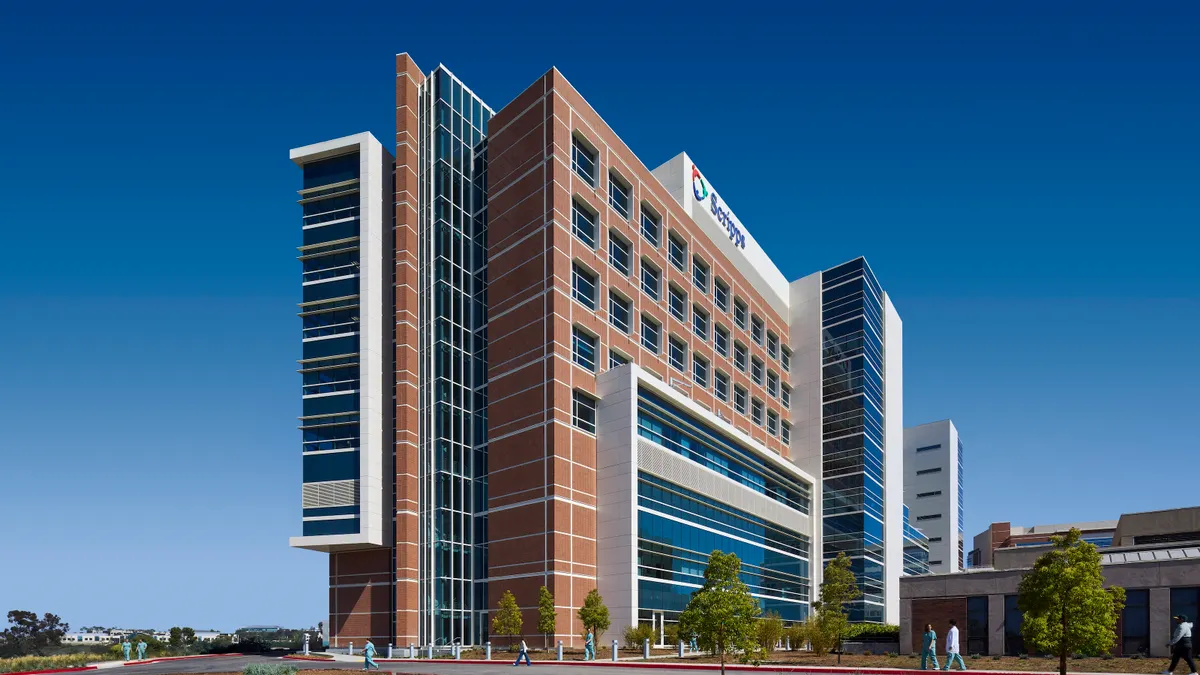The growing COVID-19 crisis has roiled the U.S. construction industry from coast to coast, with contractors large and small mired in uncertainty and wondering what their next steps should be.
The sense of upheaval comes from many arenas: how to keep employees safe, whether local jurisdictions will shut down jobsites, potential supply chain delays and government actions to respond to the crisis, including a $100 billion federal government relief package signed into law last night by President Trump.
From small specialty firms to Sandy, Utah-based Layton Construction to multinational construction giants like Fluor, Skanska and Bechtel, company leaders told Construction Dive they are working to stay on top of the rapidly changing situation in order to ensure that employees are safe and clients are satisfied.
“We’re constantly updating and revising our response and our plans as circumstances change,” a Layton spokesperson said.
Contractors and subs in affected areas are watching developments to see how they will affect current and future projects as well as business operations. Owners of construction businesses of all sizes are worried about how the federal legislation, called the Families First Coronavirus Response Act, will impact their bottom line.
A provision in the legislation mandates employer-paid leave for the next 12 weeks to workers caring for a child whose school or day care has been shut and applies to companies with 500 or fewer employees; these businesses would be reimbursed for the paid leave costs via quarterly tax credits.
Large multinational contractors have been impacted on a global scale and are dealing with business operations that are changing quickly on different continents, as the outbreak has affected other countries including the U.K., Italy and China.
“Our colleagues work in different environments across the world, in office buildings and project sites, and no one-size-fits-all solution will ensure everyone’s safety,” said a Bechtel spokesperson.”This is a rapidly changing global challenge, and we are working with our customers to carefully monitor our projects for any potential impacts.”
In addition, Sweden-based Skanska has implemented a ban on international business travel across its entire global workforce of 35,000 employees and Australian-based contractor Lendlease has canceled all nonessential business travel.
Boston stoppage
The most impacted contractors in the U.S. right now are those doing business in Boston, which announced a shutdown of all but essential construction work earlier this week. From large contractors like Boston-based Suffolk Construction to small subs and suppliers, the shutdown has brought the city’s jobs to a halt in the middle of a major development boom.
Mike Clifford, principal of DGT Associates, a surveying and engineering firm in Boston, said he wasn’t completely surprised by the mayor’s order and sees it as one more way that events are “snowballing” and changing each day as communities battle COVID-19.
Driving to work on Monday morning, he saw sites operating at full steam and just hours later got the notice that all projects had to be shut down, which he said will happen by the end of the week. “You can’t just shut a construction site down in one day,” he said.
Shutdowns have also extended outside the Boston area to Cambridge, Massachusetts, location of the Kendall Square at MIT project. Other states have curbed specific types of construction, with Pennsylvania suspending road and bridge construction for the next two weeks and delaying projects slated to get underway in March and early April. In the Bay area, commercial construction has been suspended but residential projects continue. (Click here for Construction Dive's map of areas and projects that have been shut down.)
Some early solutions
Despite the paralyzing levels of uncertainty, contractors are taking steps to be as prepared as possible for the future effects of the crisis.
Managers at California-based DPR Construction, which has had to shut down some projects in the Bay area and Boston, have created a task force of employees focused on supporting our the company's staff and customers, spokesperson Jay Weisberger told Construction Dive. The company is also working closely with subs, suppliers and clients.
“We believe the interests of our customers and our projects are best served by working together with all project stakeholders to identify the greatest risks and coordinate our efforts to prevent or mitigate any impacts that may arise,” he said.
Firms are coming up with ways to keep workers safe on site. On a Cincinnati construction site, Skanska managers are breaking up daily huddle from one large group into smaller groups, according to the Cincinnati Business Courier.
Columbia, Maryland-based Harkins Builders is asking all workers to maintain a distance of 6 feet whenever reasonably possible and is cleaning out jobsite trailers daily, arranging for commercial cleaners to clean and disinfect areas of the project as necessary in response to actual or suspected exposure, and supplying projects with additional hand sanitizers, according to CEO Gary Garofalo.
In addition, meetings with clients, subcontractors and other business partners are conducted online via Microsoft Teams or via phone conferencing. The company has also suspended topping out parties, subcontractor lunches and project-related local community gatherings until further notice.
In Pittsburgh, Ferry Electric president James Ferry said his workers put the finishing touches on a network upgrade this week that will allow all office employees to work from home if they choose. The company is also offering a monetary reimbursement for employees toward upgrades to their personal home computer setup to accommodate teleworking.
“The reimbursement is intended to be a help toward defraying a portion of their qualifying unexpected personal expense,” Ferry said. “It’s not intended to completely cover the purchase and the equipment bought with the reimbursement remains the property of the employee.”
Ferry has had three jobs shutdown by COVID-19, impacting roughly 5% of field employees: at a local nursing home, a hospital and a private job with a noncritical schedule that the owner decided to close out of caution. So far the company has been able to absorb those workers to other jobs.
“So far I think the hardest part has been staying on top of the changes as they happen, and their potential impacts, as well as putting plans in place and communicating them to employees,” Ferry said.
Cincinnati-based Messer Construction Co. has not had any interruptions in projects but managers are concerned about potential supply chain disruptions due to the effects of coronavirus-related shutdowns worldwide. They are proactively looking for shortages that could impact projects and investigating alternative solutions, Tim Steigerwald, president and CEO, told Construction Dive. Staying nimble is the most important thing right now, he said.
“Because this is an evolving situation, each day we are ensuring we are up to date on decisions by public officials in the regions where we build,” he said. “We recognize that as situations change, our teams will need to be flexible in our approach to getting business done.”




